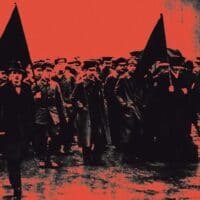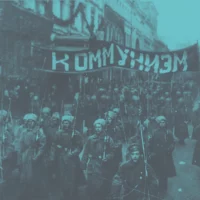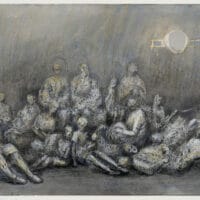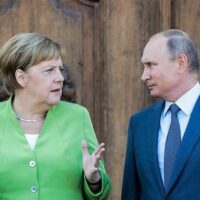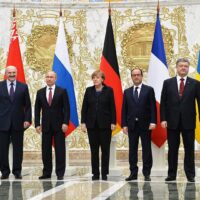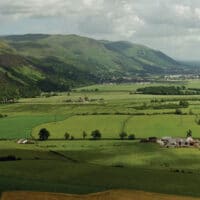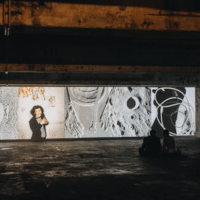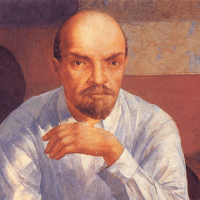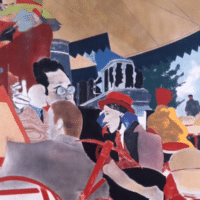-
The dollar system in a multi-polar world
The multipolar financial world is here. The United States can survive it–but only with major political and economic changes at home. It’s time to start thinking about what those need to be.
-
Rosa Luxemburg and the German revolution
The carnage of World War I was ended by revolution in Germany. It began in November 1918 with a mutiny of sailors in Kiel.
-
Lenin’s ‘The State and Revolution’
The starting point for his argument was the class nature of the capitalist state. Drawing on the writings of Marx and Engels, Lenin demolishes the idea that the state is a neutral body standing above social classes. Instead, he argues that the state exists as a means for one class to maintain its dominance over another.
-
This is not the age of certainty. We are in the time of contradictions: The Fourteenth Newsletter (2022)
It is hard to fathom the depths of our time, the terrible wars, and the confounding information that whizzes by without much wisdom. Certainties that flood the airwaves and the internet are easy to come by, but are they derived from an honest assessment of the war in Ukraine and the sanctions against Russian banks (part of a broader United States sanctions policy that now afflicts approximately thirty countries)?
-
“The policy of the USA has always been to prevent Germany and Russia from cooperating more closely”
Historical, political and economic contexts of the war in Ukraine.
-
Brief history of Minsk-2
Russia: “Minsk II”
-
Nonsense and panic: Berlin Bulletin no. 198, January 30, 2022
Why do foolhardy spoilers insist on causing embarrassment? Why must out-of-step fools upset well-steered apple-carts? Why did German vice-admiral Kay-Achim Schönbach open his big mouth on Saturday in far-off Mumbai—and spill so many beans? Many or most U.S. media overlooked it—that is, buried it. Or emasculated it. In Germany they couldn’t fully ignore it—though unpleasant […]
-
If the Russians were in Scotland…
George: “The war started because of the vile Hun and his villainous empire-building.”
-
Shuffled cards: Berlin Bulletin No. 197, December 30, 2021
After the German elections on September 26th it took, as usual, weeks and weeks for the three coalition parties to agree on one program, full of compromises, pledges and promises (some of which may even been be kept) and to resolve quarrels over who gets which cabinet seat.
-
Nord Stream 2 is a double-edged geopolitical tool
The undersea Nord Stream 2 pipeline has been built at a cost of $11 billion. But the Kremlin kept its thought to itself. We now know why.
-
LABOUR live at Metabolic Rift
Titled Metabolic Rift, the month-long event series combined both an exhibition spread across Berlin’s Kraftwerk venue and a series of concerts that captured the spirit of Berlin through site-specific interventions and live performance.
-
The full story of Metabolic Rift: A new format of underground culture by Berlin Atonal [Part 1/2]
In 2020, we were forced to put our lives on pause. Countries were divided from one another; communication between people moved to the more diluted online space. The schedules of jet setters across the world became completely blank, and one German artist passionate about the environment went as far as to say they’d never fly again.
-
Global Lenin
The picture presented in the volume is one of the Leninists’ Lenin (with partial exceptions), but he and his co-editors certainly did not aim at conveying a composite historical account that would include every possible voice from Russian Orthodox priests’ through neoliberal pundits’ and new right fascists’, to the Vatican’s or the Taliban’s conception of Lenin and his historical role.
-
A hard loss and a triumph: Berlin Bulletin No. 196, September 30, 2021
The most important election result is hardly discussed in the media—and when it is, then with satisfaction or joy. It is, in fact, a truly sad result. The Left (DIE LINKE) missed the red line level of 5%—but was miraculously saved by a special rule; if three or more delegates of a party win out in their own districts—with those first crosses—then their parties and their proportionate lists are saved, just as if they had reached 5%.
-
Berlin locals vote to expropriate real estate giants
Berliners cast their referendum votes on whether to nationalize thousands of housing units owned by real estate giants. After counting all votes, over 56% voted in favor of the measure.
-
Who with whom elections: Berlin Bulletin, no. 194, September 20, 2021
In German elections—like the coming ones, as always on a Sunday—all you have to do is present the registration paper mailed to every citizen, then make crosses on a paper ballot. No trouble with the boss, no missing work, long lines or quarrels about fraud or discrimination. It sounds easy.
-
Berlin Wall and Kaiser Palace: Berlin Bulletin No. 194 August 10, 2021
Until 1989 that terrible Berlin Wall angered many an East German. The small part of Germany it helped preserve for 28 years was always the butt of anger, sarcasm, vituperation and resistance in one form or another.
-
Walter Benjamin’s Marxist critique
The works of Walter Benjamin confuse the majority of his readers, but this does not need to continue.
-
A happy warrior + Esther Bejarano + Presente: Berlin Bulletin No. 193 July 20, 2021
Esther Bejarano’s death hits hard, leaving a painful gap in Germany’s anti-fascist scene. Most media and many politicians voiced their praise and mourning—after almost totally ignoring her in life and attacking and trying to squelch organizations she was active in, as an avowed Communist.
-
Jack and Jill tumble: Berlin Bulletin No. 192, July 3, 2021
After legally receiving a Christmas gift of 24,000 euros from her party, Annalena Baerbock somehow neglected to report it in her tax returns. No big deal, some might think, but after the scandals about Christian Democrats nobly enriching themselves when purchasing face-masks, and two far bigger scandals hanging over the head of the Social Democrats’ chancellor candidate Scholz (currently still Finance Minister), the squeaky clean reputation of the Greens had been a major asset. No longer!


